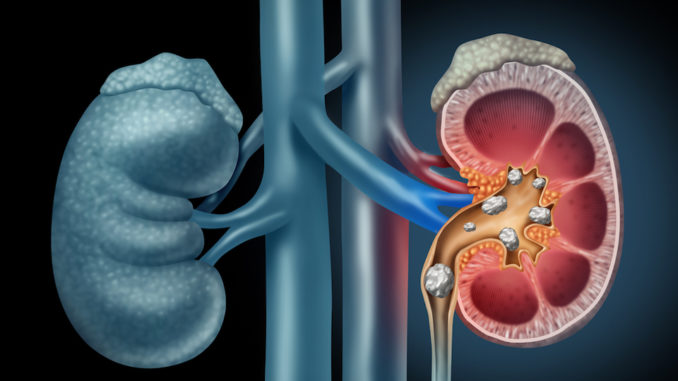
OxThera AB, a Stockholm-based privately-held biopharmaceutical companyand leader in the field of microbiome derived biotherapeutics, today announced a poster presentation showing encouraging Oxabact® efficacy and safety data from the long-term study OC5-OL-01, at the Annual Meeting of the American Society of Nephrology Kidney Week 2018 in San Diego.
“We are pleased to present the initial outcomes after a 52-week continuous treatment with Oxabact® in patients with Primary Hyperoxaluria treated with maintenance dialysis”,
says Matthew Gantz, CEO of OxThera.
“To our knowledge, study OC5-OL-01 represents the longest efficacy and safety data of any intervention to lower the oxalate burden in patients with PH1 to date. We are very encouraged that Oxabact® was able to lower plasma oxalate and normalize cardiac function, particularly since patients did not need an intensification of their dialysis regimen. We are excited about the potential of Oxabact® in helping patients with this devastating disease”.
The single-arm, open-label clinical trial, OC5-OL-01, is an ongoing study that enrolled patients into a long-term treatment phase of up to 3 years, or until liver/kidney transplantation. The report at ASN is an interim analysis of patients who reached 52-week therapy with Oxabact®.
“In end-stage renal disease (ESRD) patients with PH1, oxalate removal via dialysis cannot counterbalance the excessive endogenous overproduction of oxalate in the liver, and often systemic oxalosis leads to high morbidity and mortality”
said Prof. Bernd Hoppe, M.D., Head of the Division of Pediatric Nephrology in the Department of Pediatrics at the University Hospital Bonn, Germany.
“A 52-week treatment regimen with OC5 in patients with PH1 undergoing dialysis was safe, reduced plasma oxalate and provided evidence that systemic oxalate deposition can be slowed down, which would be an important outcome advantage for patients awaiting transplantation”.
Primary hyperoxaluria is a rare autosomal recessive disorder leading to markedly elevated levels of endogenous oxalate in plasma and urine. High levels of oxalate cause kidney damage, including crystallization of oxalate in tissues and in the kidney. If left untreated, the disease can cause kidney failure and premature death.
Treatment with Oxabact® is administered as capsules twice daily containing highly concentrated freeze-dried live bacteria (Oxalobacter formigenes). Oxabact® is designed for controlled release in the small intestine, where its mechanism of action is to improve active secretion of oxalate from plasma to the gut. For patients suffering from Primary Hyperoxaluria, Oxabact®therapy could help remove excess oxalate and delay or prevent oxalate crystal deposition.
For information about the study and active study sites, please visit http://www.clinicaltrials.gov. For information on Primary Hyperoxaluria, please visit http://www.ohf.org or http://www.oxaleurope.org .
OxThera holds proprietary rights to pharmaceutical preparations of enzymes and bacteria and their use for treatment of hyperoxaluria. Oxabact® holds orphan drug designations in the EU and the US for the treatment of PH.

